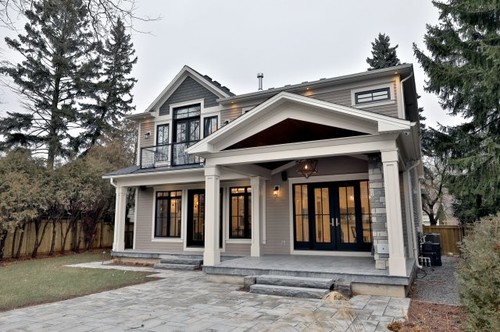Whether a homeowner hires a contractor or does a renovation on their own, the schedule, the scope and the budget will all play key roles. The schedule determines how long the job will take, the scope is the actual work and the budgeting is how much it will all cost. The experts at Alair Homes Collingwood offer the following tips on how to keep the expenses of a home update under control.
Stay Realistic
Before the project begins, a clear plan should be in place. For example, if a staircase is going to be modernized, it can be done for less money by simply changing the banister and painting the stairs. If the staircase needs to be completely reconfigured, it will be more expensive. Understanding the scope of the work involved goes a long way to controlling the cost.
Stay on Plan
During the course of the project, a homeowner may notice other areas of the home that require upgrading, such as old, stained carpeting. While it is tempting to add new carpet to ongoing work, it will involve a large cost increase. It is best practice to stay focused on the current project and make a separate plan with its own budgeting for other work later on.
Be Specific
It is very important for a homeowner to be specific about what they want. Large differences in contracting bids occur when assumptions are made regarding materials and end results. A detailed plan that spells out exactly what is expected will result in a renovation that turns out just as the homeowner envisioned.
Be Prepared
Very few projects go completely as planned. Materials can be delayed, the weather can be uncooperative and unexpected surprises like rodents can bring work to a halt. This is why every budget should have a contingency built into it. This is typically an extra five to 20 percent over the original estimated cost. Older homes and larger projects will require higher contingencies, possibly up to 50 percent over the estimate.
Manage Changes
Most upgrades will see changes from the original plan. A homeowner may decide they do not like the color or tone of certain materials. Changes are normal and usually not an issue unless they become too extensive, which will add scope and cost to the project. A good way to avoid this is to make sure the changes are actually necessary and worth the extra time and expense.
The budget is an important tool when it comes to a home renovation. Following the tips above will keep spending under control and ensure the project is finished on time and looks exactly as it should.
